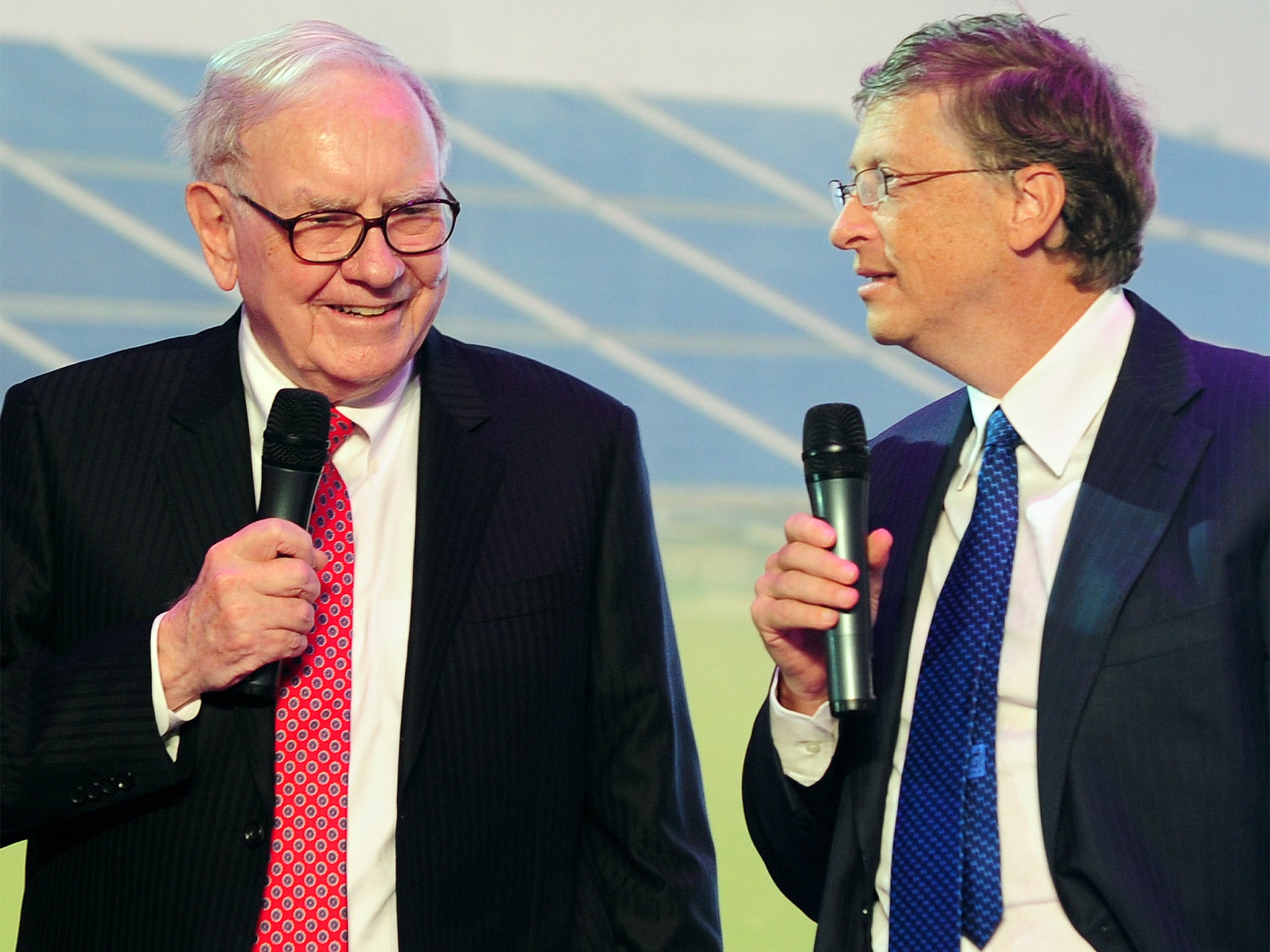World's 200 wealthiest people made a combined £193.3bn this year
Richest few end 2016 with combined fortunes of £3.6 trillion

Your support helps us to tell the story
From reproductive rights to climate change to Big Tech, The Independent is on the ground when the story is developing. Whether it's investigating the financials of Elon Musk's pro-Trump PAC or producing our latest documentary, 'The A Word', which shines a light on the American women fighting for reproductive rights, we know how important it is to parse out the facts from the messaging.
At such a critical moment in US history, we need reporters on the ground. Your donation allows us to keep sending journalists to speak to both sides of the story.
The Independent is trusted by Americans across the entire political spectrum. And unlike many other quality news outlets, we choose not to lock Americans out of our reporting and analysis with paywalls. We believe quality journalism should be available to everyone, paid for by those who can afford it.
Your support makes all the difference.The world's 200 wealthiest people made a combined $237 billion (£193.3 billion) this year, according to the Bloomberg Billionaires Index, bringing their total net worth up to $4.4 trillion (£3.4 trillion).
Their combined fortunes were up 5.7 per cent at $4.4 trillion (£3.6 trillion) by the close of trading on 27 December.
Meanwhile, the world's poorest 3.6 billion people — just under half the world's population — had a net worth of $1.76 trillion (£1.44 trillion) in 2015, according to a study by Oxfam, amounting to just $488 (£398) per person.
The Brexit vote and Donald Trump's US election victory saw the world’s billionaires' wealth fluctuate through $4.8 trillion (£3.9 trillion) of daily gains and losses before ending the year on a high note, with the highest gains by multi-billionaire Warren Buffett, who made a total of $11.8 billion (£9.6 billion) — amassing on average $32.2 million (£26.3 million) every day.
The rankings highlight how much global wealth inequality has grown in recent years, and have led experts to assess the changing political landscape over the past year.
Dr Rob Dover, Associate Professor in Intelligence and Security at Leicester University, said the rise in wealth of the richest indicated that the “make us great again” mantra of populist thought wasn’t driven by a promise of redistribution, but rather the desire for a greater sense of self.
Dr Dover told The Independent: “The rise in the richest people's wealth does not discredit the promises of populism. What it shows is the failure of insurgent electorate's to pay attention to the validity of populist messages and what they really meant.
“The seductive but imprecise 'making us great again' mantras populists have stood behind have not promised redistribution - something that publics would have been able to put in a bank - but more a greater sense of self.
“The volatility of the markets that have resulted from these unexpected results were always likely to benefit those with considerable capital, as they can take advantage of market opportunities in a way that ordinary folk cannot.
“This is more a story of how the establishment was bested by more sophisticated alternative establishment market participants, than a betrayal of populism.”
Dr Brian Klaas, fellow in Comparative Politics at the London School of Economics spoke of the irony of how President-elect Trump had “tapped into the real economic anxieties of millions of Americans”, yet hired “by far” the richest cabinet in American history.
“Donald Trump ran on a promise to ‘drain the Swamp’. He tapped into the real economic anxieties of millions of Americans who are victims of sharp increases in inequality over the last quarter century," Dr Klaas told The Independent.
“And yet, his strategy to drain the swamp seems to be hiring much of it. Beyond the corporate lobbyists and industry titans who will be the new regulators, the Trump cabinet will be — by far — the richest in American history.
“The net worth of the proposed cabinet surpasses the net worth of the bottom third of American households combined. The economic policy ideas they are putting forward would not address inequality but instead double down on the approach that produced it.”
In November, Nobel Peace laureate Mohammed Yunus cautioned that a growing income divide is worsening social tensions, saying: “Wealth has become concentrated in just a few places in the world ... it's a ticking time bomb and a great danger to the world.
“This creates tension among people at the bottom (of the income ladder). They blame refugees and minorities — and unscrupulous politicians exploit this.”
According to the Bloomberg Billionaires Index, Bill Gates was the richest individual as of 28 December this year, with a net worth of $91.5 billion (£74.7 billion), with Warren Buffett in second place with $73.6 billion (£60.1 billion) and Amancio Ortega third with a net worth of $71.2 billion (58.1 billion).
Join our commenting forum
Join thought-provoking conversations, follow other Independent readers and see their replies
Comments